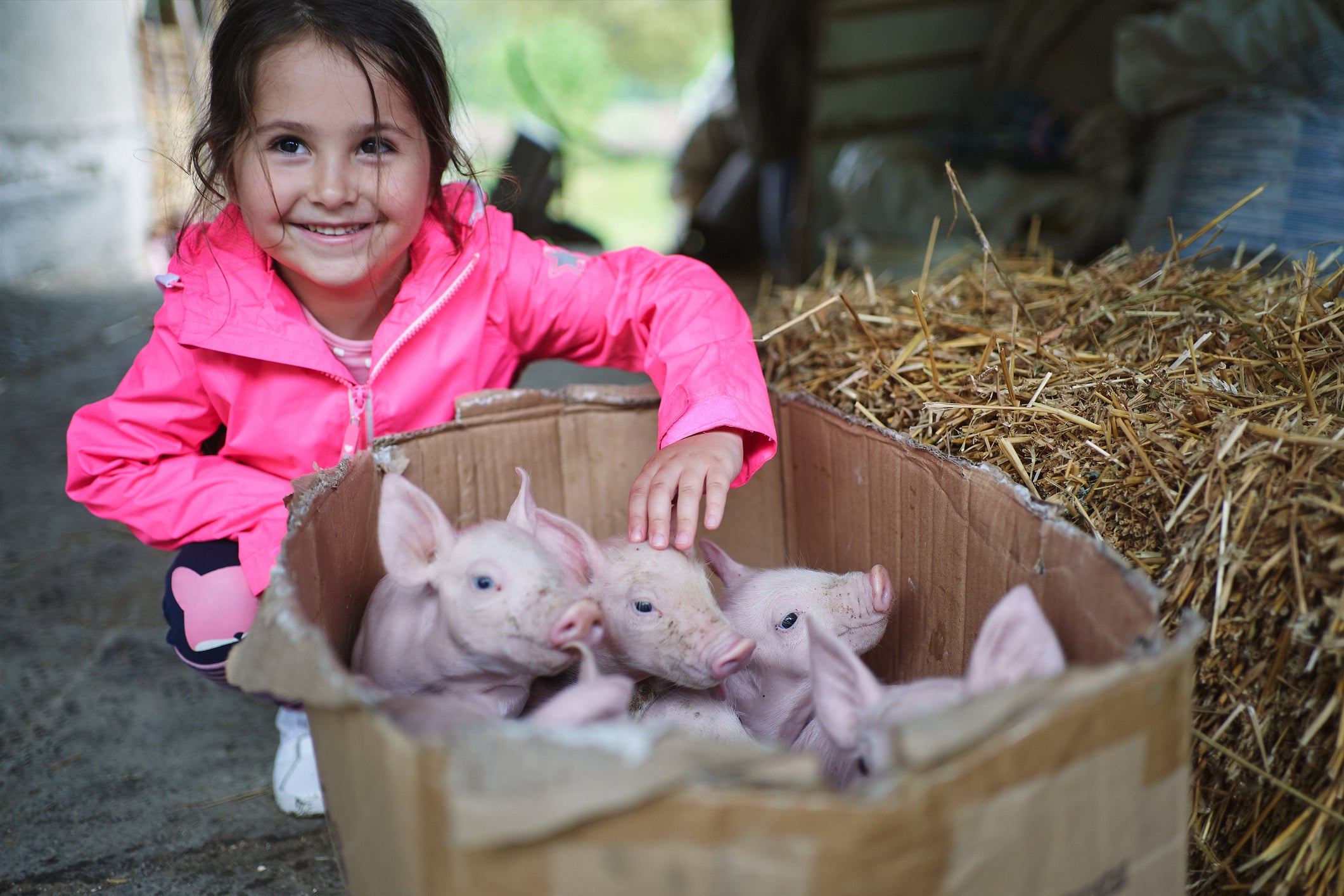Children think meat eating is less morally acceptable than adults and that farm animals should be better treated
Researchers suggest more vegetarian options in schools could help break ‘normalisation’ of meat eating, writes Harry Cockburn

Children’s views on animal welfare are "dramatically" different from adults’, with much higher concern for welfare, and the belief that eating animals is "less morally acceptable" than it is to adults.
New research by scientists at The University of Exeter indicates that children believe farm animals "should be treated the same as people and pets", but also shows how views change during adolescence.
The research team asked children aged 9 – 11 about their thoughts on the moral status and treatment of farm animals (pigs) pets (dogs) and people.
The results revealed a considerable gap between adults’ views and the way children think about our fellow mammals.
The research team – including the University of Oxford – surveyed 479 people, all living in England, from three age groups: 9-11, 18-21 and 29-59.
The two adult groups had relatively similar views – suggesting attitudes to animals typically change between the ages of 11 and 18, the researchers said.
The findings suggest that "speciesism" – a moral hierarchy that gives different value to different animals – is learned during adolescence.
"Humans’ relationship with animals is full of ethical double standards," said Dr Luke McGuire, from the University of Exeter.
"Some animals are beloved household companions, while others are kept in factory farms for economic benefit.
"Judgements seem to largely depend on the species of the animal in question: dogs are our friends, pigs are food."
He added: "Something seems to happen in adolescence, where that early love for animals becomes more complicated and we develop more speciesism.
"It’s important to note that even adults in our study thought eating meat was less morally acceptable than eating animal products like milk.
"So aversion to animals – including farm animals – being harmed does not disappear entirely."
The study also found that, as people age, they are more likely to classify farm animals as "food" rather than "pets" – while children were equally likely to consider pigs to fall into either of these categories.
While adjusting attitudes is a natural part of growing up, Dr McGuire said the "moral intelligence of children" is also valuable.
"If we want people to move towards more plant-based diets for environmental reasons, we have to disrupt the current system somewhere," he said.
"For example, if children ate more plant-based food in schools, that might be more in line with their moral values, and might reduce the ‘normalisation’ towards adult values that we identify in this study."
The research is published in the journal Social Psychological and Personality Science.






Join our commenting forum
Join thought-provoking conversations, follow other Independent readers and see their replies
Comments